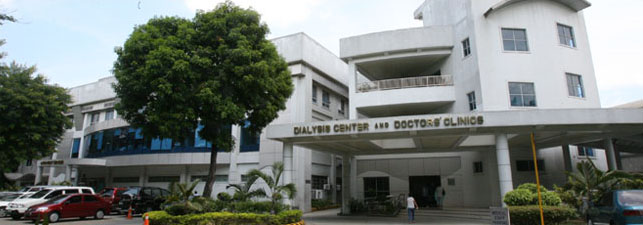Health
NKTI bares temporary closure of its Out-Patient HD Center

National Kidney and Transplant Institute: Asia’s leading kidney transplant center. Photo courtesy of nkti.gov.ph
MANILA — The National Kidney and Transplant Institute (NKTI) management in Quezon City appealed on Wednesday to the general public for an understanding on its decision to temporarily shut down its hemodialysis (HD) operations for out-patients.
“For the best interest of the patient’s safety, we have decided to temporarily close HD operations for a few days while some system’s check-up will be undertaken on our HD machines,” said Dr. Jose Dante P. Dator, NKTI executive director.
During a press briefing held at the Diagnostic Center Conference Room, Dr. Dator, along with other doctors of NKTI, announced they made the decision in order to protect the patients’ welfare as they are still in the process of identifying if there are system’s problems on the HD machine that require replacement or sort of renovation.
“Please rest assured that we are doing all measures that are possible to expedite the process and be able to resume our HD services at the earliest possible time, and not sacrifice the patients’ welfare,” Dator said.
He explained that they came out with the decision while trying to find the probable cause of the “chills” experienced by some patients undergoing HD treatment last week.
“As soon as we are able to resolve the cause of the ‘chills’ that affected 44 out-patients of NKTI, the HD treatment will resume,” he assured.
As of now, the NKTI is looking at some possible reasons for the chills, such as the presence of bacteria in the water during dialysis that could have lead to infection.
“Since our foremost concerns are the patient’s safety, we are also looking on that aspect,” the NKTI director said.
He noted that there are also cases where patients are experiencing chills due to first-time exposure to the instruments and treatment involved in HD.
He also cited certain cases where patients experience chilling due to allergy and change of temperature.
Dr. Dator said the 44 patients who experienced chilling on Wednesday and Thursday last week were referred to other receiving hospitals that give the same treatment.
Meanwhile, Dr. Romina A. Danguilan, NKTI deputy director for HD, clarified that in-patients undergoing dialysis are still being treated in NKTI as there are separate treatment facilities for them.
Dr. Danguilan also said that they are also offering peritoneal dialysis to the patients as an alternative.
She explained that peritoneal dialysis is one good alternative as the patient’s caregiver or relative can conduct it at home.
She cited that the cost of treatment for peritoneal is the same with HD and both can be reimbursed through PhilHealth.
Peritoneal dialysis is a process that uses the patient’s peritoneum in the abdomen as a membrane across which fluids and dissolved substances (electrolytes, urea, glucose, albumin and other small molecules) are removed from the blood.
Dialysis process involves the flow of the patient’s blood to a dialyzer where the removal of toxins and excess water occurs and after which the cleanse blood returns to the patient’s arteries.





















